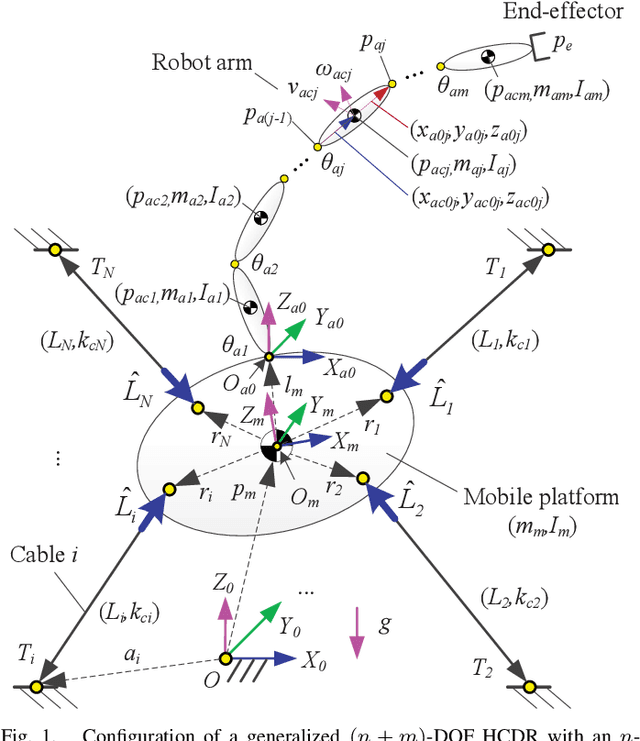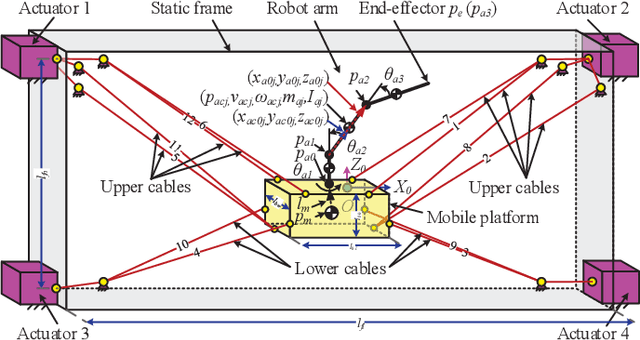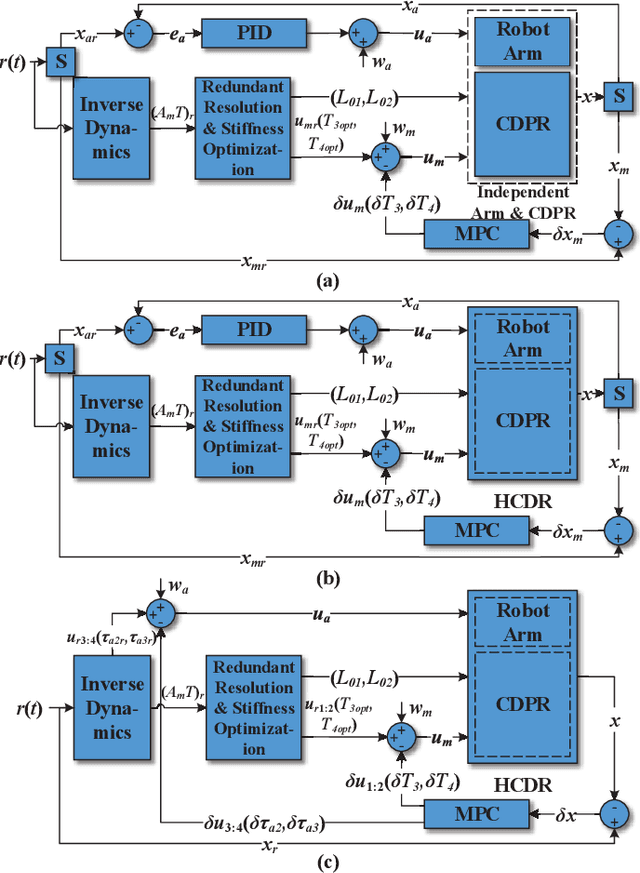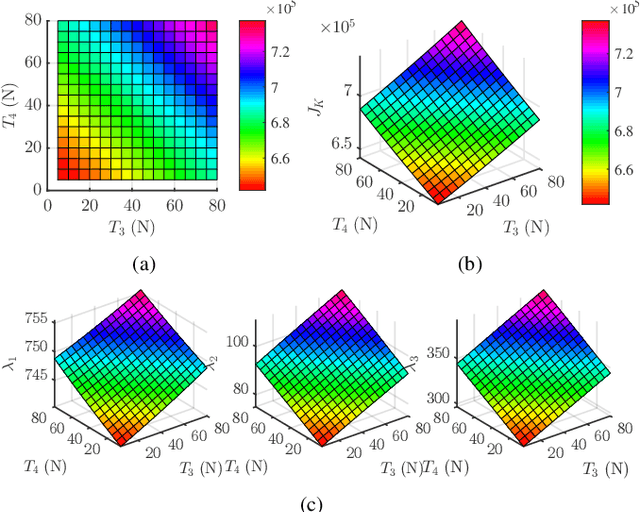Generalized Flexible Hybrid Cable-Driven Robot (HCDR): Modeling, Control, and Analysis
Paper and Code
Nov 14, 2019



This paper presents a generalized flexible Hybrid Cable-Driven Robot (HCDR). For the proposed HCDR, the derivation of the equations of motion and proof provide a very effective way to find items for generalized system modeling. The proposed dynamic modeling approach avoids the drawback of traditional methods and can be easily extended to other types of hybrid robots such as a robot arm mounted on an aircraft platform. Additionally, another goal of this paper is to develop integrated control systems to reduce vibrations and improve the accuracy and performance of the HCDR. To achieve this goal, redundancy resolution, stiffness optimization, and control strategies are studied. The proposed optimization problem and algorithm address the limitations of existing stiffness optimization approaches. Three types of control architecture are proposed and their performances (i.e., reducing undesirable vibrations and trajectory tracking errors, especially for the end-effector) are evaluated using several well-designed case studies. Results show that the fully integrated control strategy can improve significantly the tracking performance of the end-effector.
 Add to Chrome
Add to Chrome Add to Firefox
Add to Firefox Add to Edge
Add to Edge